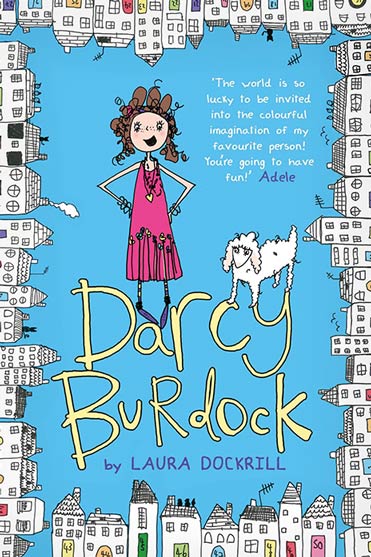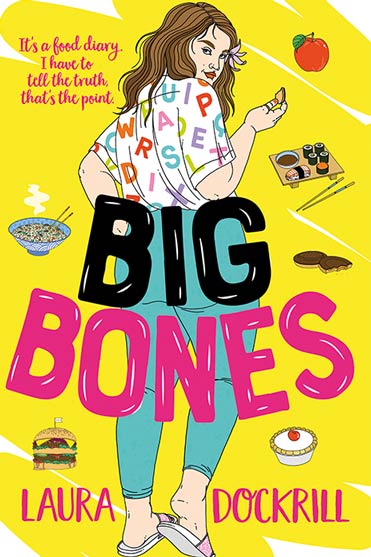Q: Where did you go to school and when?
A: I went to the Brit School for Performing Arts (OVER 10 YEARS AGO NOW!!!)
Q: What sort of school was it?
A: It is magical and special. When I first stepped foot in the building I immediately felt at home. I had struggled in my previous school to find a footing as it was very academic and felt a huge amount of pressure and further and further away from what I actually wanted to do. But Brit School was my habitat and home to my species; it’s an open-minded, free-thinking, risk-taking school that encourages and empowers young people to take leaps and be brave and experiment with form and genre. I am eternally grateful to it.
Q: What was your favourite subject?
A: Theatre. The theatre department was a scrubby little layout of three rooms, all painted black with the most simple of setups. Our costume bit was basically made up of a wig, an old mustard moth-eaten armchair, a few weird outfits and a mop. But that was all we needed, the space was a complete blank canvas.
Q: Which teacher influenced you most in life and why?
A: I have had a lot of wonderful, inspirational teachers in my life. Nick Williams, then the principal of Brit School, who always gave me time in his office to tirelessly go over my essays and poetry and always encouraged my writing. Then there was Miss Bamford, who taught me at primary school. She was a solid punk with a shaved head, dyed ox-blood red. She had a pierced nose, tattoos and ginormous wonderful boobies – so great that we would deliberately fall over in the playground just to get a hug from her. I always loved that she came to school dressed like herself. It gave her not only an informality and genuine softness and likeability factor but made us feel we could trust her, like she was legit, ONE OF US.
Q: Did you have a special place at school?
A: Those rooms at The Brit School. They were cold, intense and completely black, littered with scraps of poetry, crisp packets, browning apple cores and flattened Ribena Cartons. And we were obsessed with them. With the curtains closed and the spotlights on full, we would often be still there at 7 pm on a Friday just ‘hanging out’, making up stuff (and school finished at 12 on Fridays.)
The Brit school spoke to me like an adult but let me think like a child
Q: What beliefs do you think your school instilled in you?
A: It endorsed my love and verve for theatre, language and literature but also allowed me to play across other strands and mediums, pushing me and guiding me. It spoke to me like an adult but let me think like a child. It made me think freely and work collaboratively and actively; and understand rejection, competition, kindness. It practises and demonstrates the importance of valuing and respecting art across all of its many borders, strands and disciplines; there is no star of the show. The school showed me how to work hard. To trust that enough is never enough, there is always more to do, more reading, more talking, more ways to be active. That it is illegal to be bored and even worse to be lazy. But also, I thank it for infusing me politically and socially, bolstering myself as a woman, supporting me as a young feminist and helping me find a confident voice in the competitive world of writing.
Q: What is your most vivid memory of your time there?
A: So many, they all roll into one kind of blurry dream where I can’t even report what was school and what was social, it was such a happy place. I felt like I really got the chance to thrash out my emo-teen years there and was allowed to do it, it was a bit like rehab in that way. I remember lots of first encounters of meeting people that have since gone on to become my best friends.
Q: Were you too cool for school?
A: No. I talked to and loved everybody. I wore multi-coloured tights, leopard print converse, ill-fitting jackets, had bitten-down, painted, chipped nails, knotty hair and was usually eating a tin of tropical fruit in syrup.
Q: What effect did school have on your character? Did it change you?
A: Yes, for all of the above reasons. Sometimes I meet people and I can’t help but think, ‘I wish you got the chance to go to Brit.’ People say they can always tell a Brit kid.

Q: Where did you develop your love of writing and drawing?
A: I have always written and drawn. I’m obsessed with fairy tales, Greek mythology and Roald Dahl. I’ve always believed that words and art go together in some way. I like the way words and art look on a page/ screen/ stage together. Then I am obsessed with the way humans talk, move, explain themselves. Both my parents raised me to love people, to enjoy the art of conversation and proper storytelling. I think both of my parents lead me to believe that the process of an artist is just as important as the end product of the art itself. So I enjoy finding stories within stories. The scratchy scribbly bits in-between. I’ve always been fascinated with a broad, vibrant, experimental approach to making art. And making mistakes too. I find enjoyment and freedom in just whirling away the hours with a pen and a stack of paper.
Q: Tell us about your latest book?

A: Big Bones is about a young girl who loves her body. It is an endorsement into body positivity, food, confidence and womanhood. I loved writing it and eating my way through the chapters. I wrote it in a really weird time in my life where I turned 30 and thought WAIT A SEC, WHAT THE HELL AM I DOING? It is a bit of an apology and love letter to my younger self and a conversation with my younger readers. It’s very special to me.
Q: What are your plans for the future?
A: I would just love to do more and much of the same, because I feel so grateful that every day I am met by my characters and stories and that gets to be my job. I don’t want to be greedy and ask for more than I already have.
Q: How would you sum up your school days in five words?
A: Escape, play, surreal, magical, precious.
Big Bones is published by Hot Key Books in March 2018
You may also like...

























